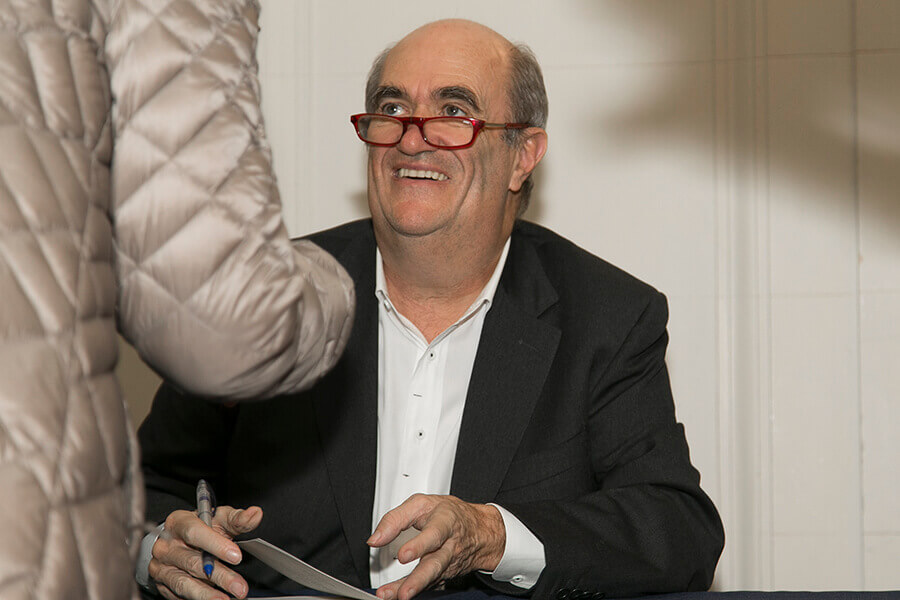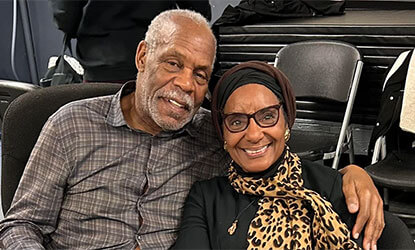The 12th season of Monmouth University’s Visiting Writers Series came to a close in April with an appearance by acclaimed writer Colm Tóibín.
A native of Ireland, Toibin is the author of 11 novels as well as numerous short stories, essays, and plays. He is perhaps best known for his 2009 novel Brooklyn, which tells the story of the struggles and successes of Eilis, a young Irish immigrant living in New York in the 1950s.
During his campus appearance in April, Toibin read from and discussed his most famous work as well as his more recent novel, Nora Webster, which tells the story of a widowed mother who must rebuild her life after her husband’s death.
“I always try to work out a sort of story to tell as to how these two books really become almost companion pieces,” said Tiobin, who had previously spoken at the university in 2010. “[One is] about somebody who stays, Nora, and somebody who leaves, Eilis.”
The 2011 recipient of the Irish PEN Award, given annually to an Irish-born writer who has made an outstanding contribution to Irish Literature, Toibin joked with the audience about how seriously the Irish approach books and literature.
“If you wrote a bad book, or a lazy book … a book with any kind of impurities about it, people would despise you,” he said. “I hesitate to say this, but you probably could murder somebody and people will think, ‘That wasn’t great,’ but writing a bad book would be taken very seriously indeed. You would be ostracized, as will members of your family,” he joked.
His personality and ability to translate his love of writing into word captivated many in the audience.
“Toibin’s reading was a wonderful combination of personal anecdote and writing-craft talk that entertained and fascinated me,” said Annabel Lamb, a sophomore English student. “Not only were attendees given an intimate portrait of the writer himself, but the glimpse into his writing process and inspiration [felt] valuable on an academic and creative level.”
Jaime Kops, a junior English student, agreed, adding, “Whether it was reading parts of his book or answering questions, you could tell how much he enjoyed being a writer. I think that’s important in itself, because it shows that he genuinely enjoys what he does. That’s an important lesson to be learned.”
Michael Thomas, associate dean of Monmouth’s School of Humanities and Social Sciences and director of the Visiting Writers Series, said that he’s “never heard or seen a fiction writer handle their fiction the way he does in a public performance. It is so unique”.
“People were awestruck. Great literature can draw all kinds of audiences in from any age group and any background, and I think Tóibín achieves that,” said Thomas.
A version of this article previously appeared in The Outlook, Monmouth’s student-run newspaper.





